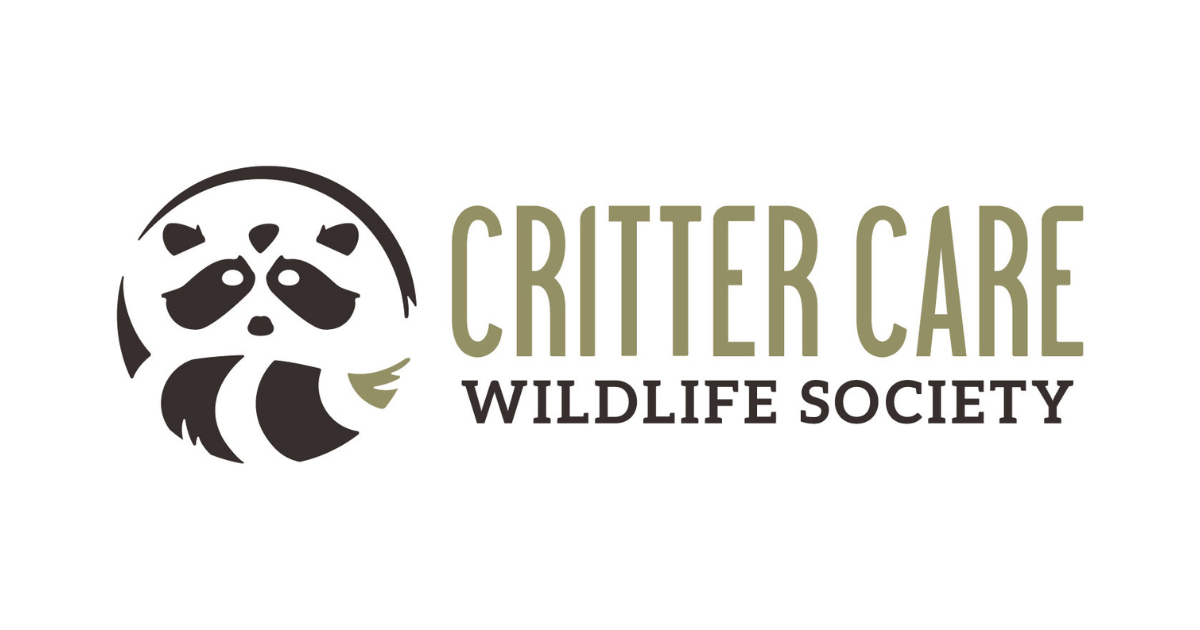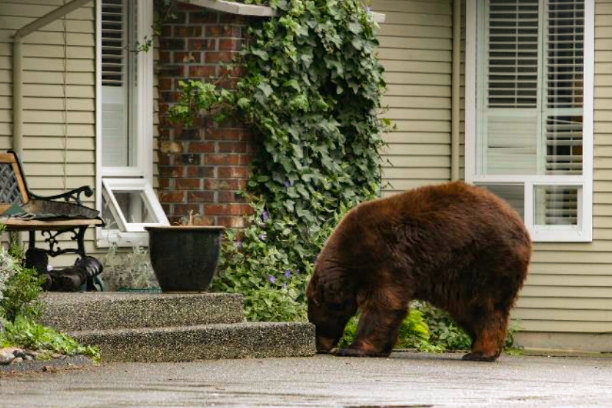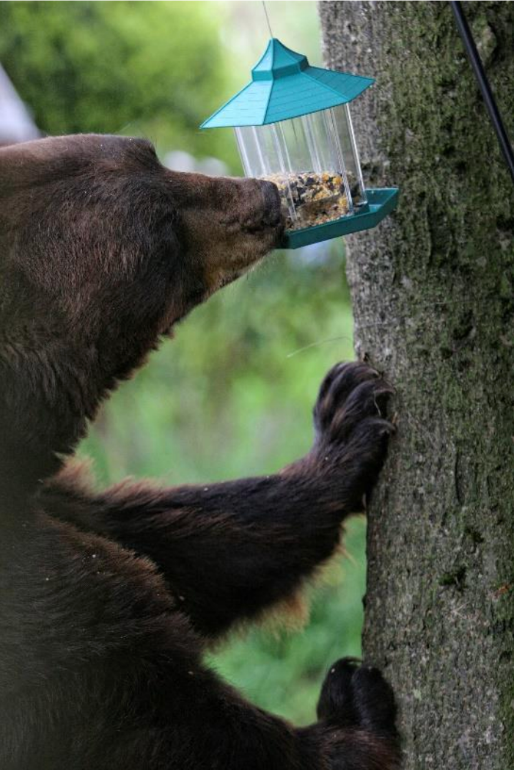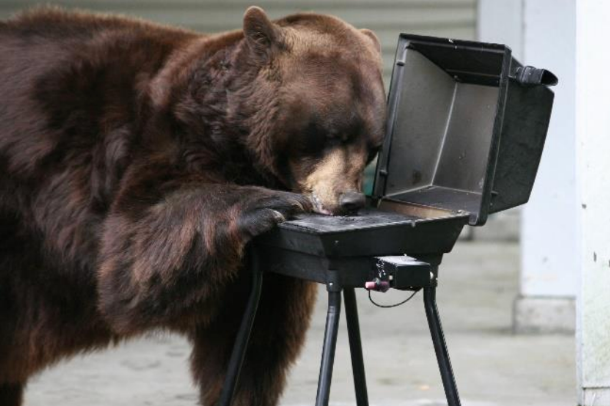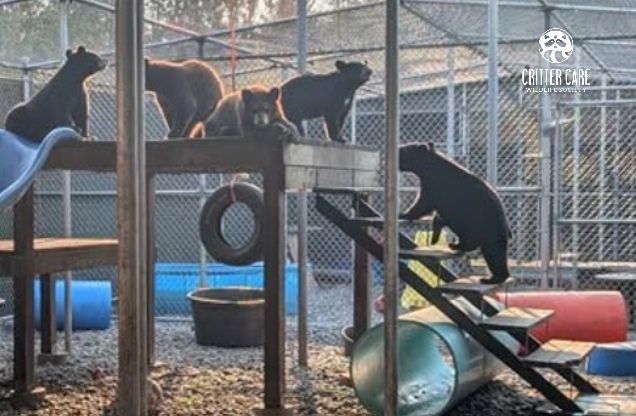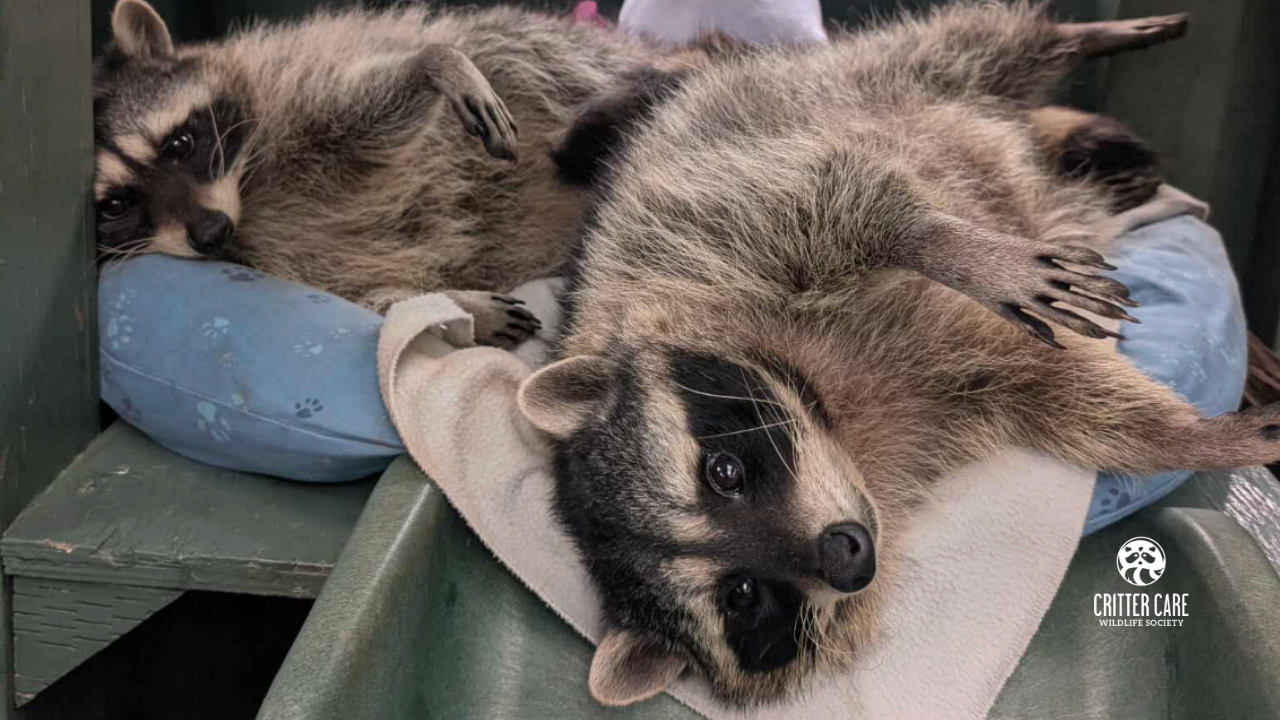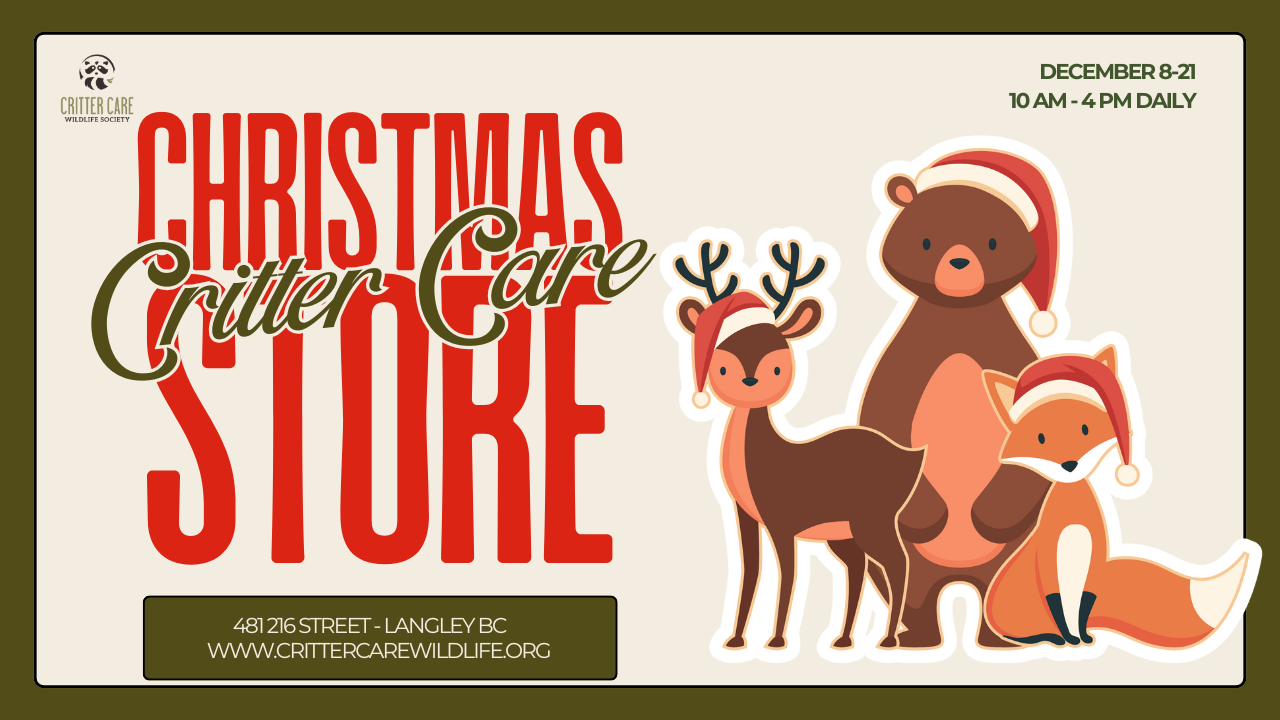Coexistence means reserving wild spaces for bears while keeping them out of our kitchens and away from our porches. It's great to commune with nature in its natural habitat, but your backyard or community areas meant for people are a different story.
Some bury their heads in the sand, while others vent on social media, but these actions won't solve the problem. As Brené Brown wisely said, "The universe is not short on wake-up calls. We're just quick to hit the snooze button."
The time for action is now. Get involved, make your property unattractive to bears, and share your bear smart knowledge with others.
Becoming bear smart is a collective responsibility. Officials can't do it alone; they need your support. People must deter black bears from their properties directly, providing an immediate negative response to inappropriate behavior, just like training a dog.
There's a brief two-second window for any mammal to link cause and effect. Get loud when necessary – banging pots and pans to reinforce the message that black bears should stay away from human areas. Always do so from a safe distance and with others around, allowing the bear an escape route. Never try to deter a grizzly (brown) bear yourself. Always call the Conservation Officer Service. Allowing bears to feel comfortable in your backyard only encourages their undesirable behavior.
It's not a utopian ideal to teach bears that humans are friendly; it's a recipe for conflict, escalating from food access to home intrusion, and ultimately leading to the bear's demise. Sharing your backyard with bears isn't coexistence; it's a death sentence.
It's time to shift our mindset about this issue. Imagine a bear smart community where each member takes accountability and incorporates the needs of bears, wildlife, and the environment into their daily routines.
It's a vision worth pursuing.
